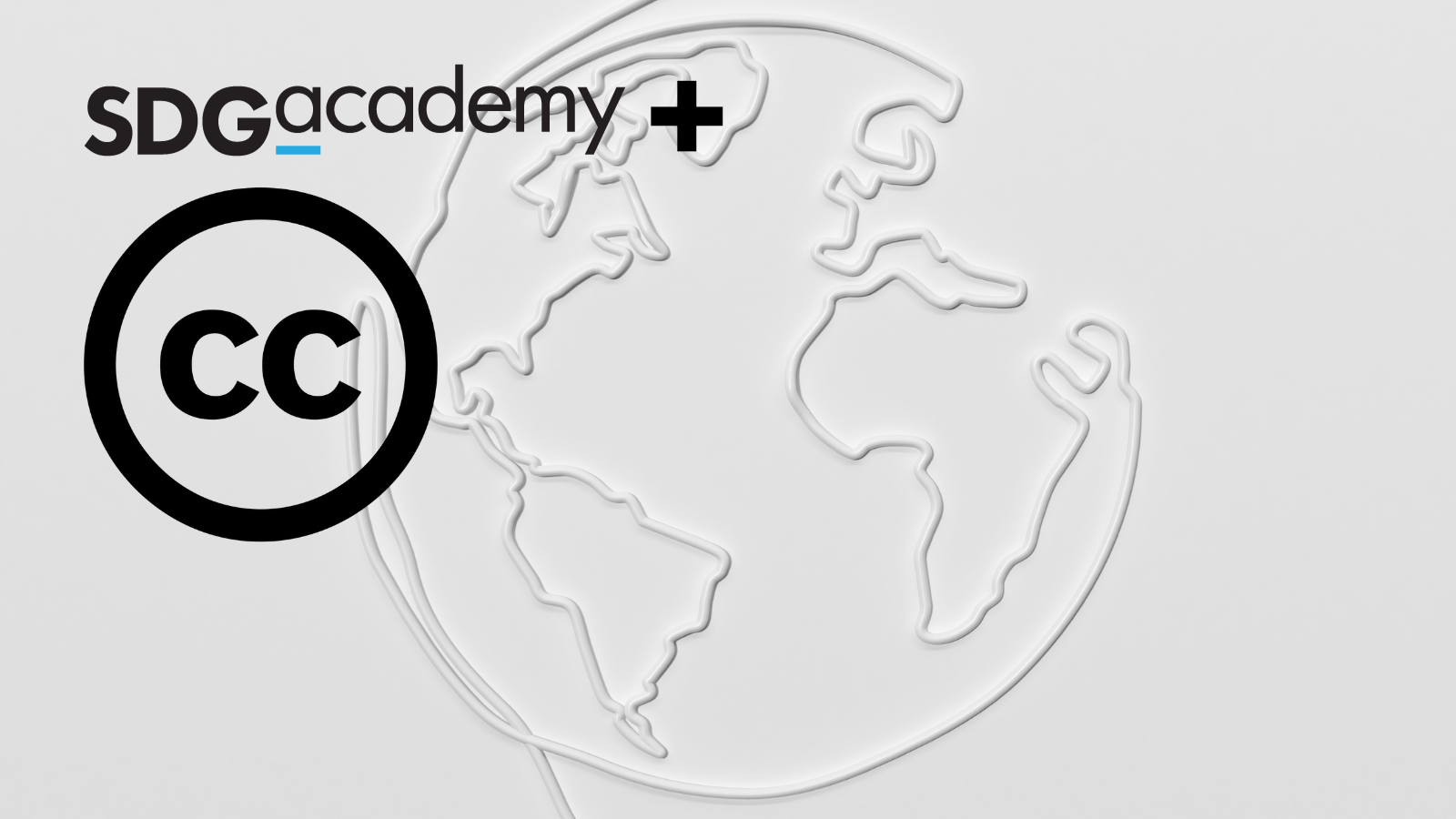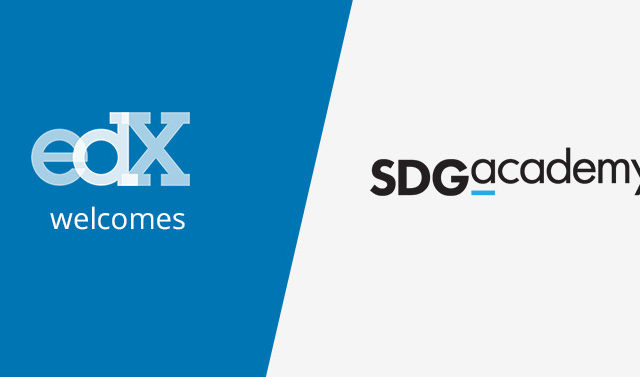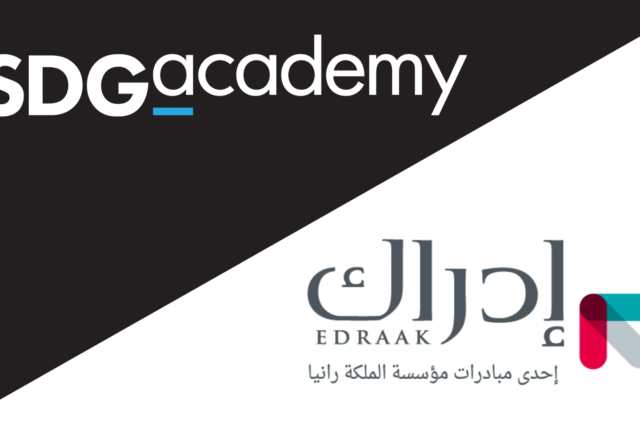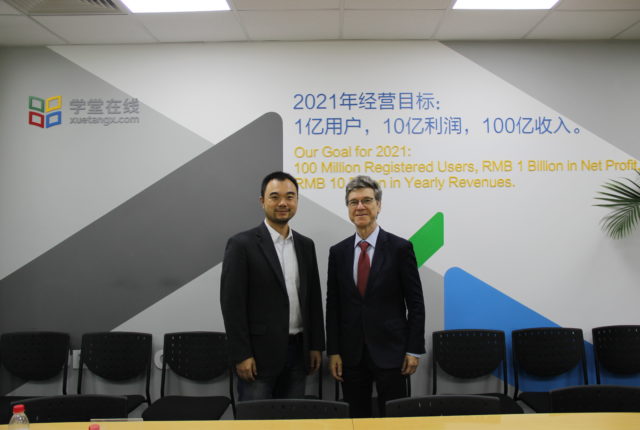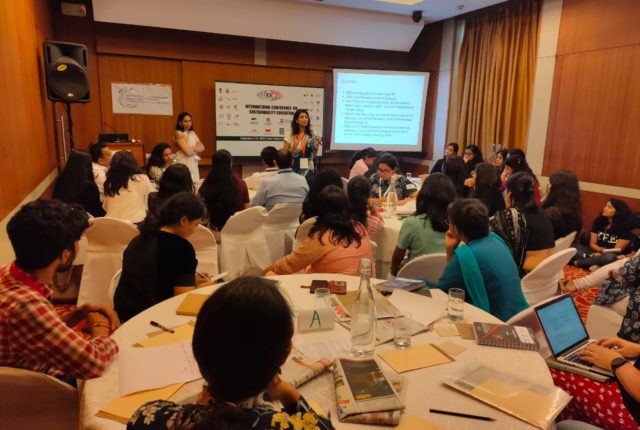By Chandrika Bahadur, Director, SDG Academy, and Cable Green, Director of Open Education, Creative Commons
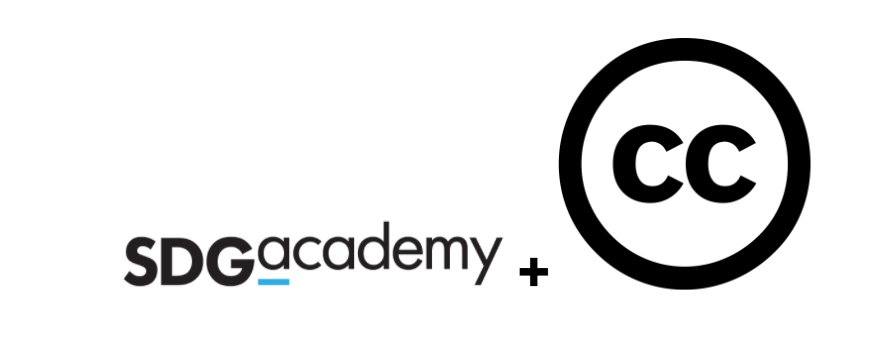
Open access to knowledge has never been more important than it is today. The promise of connectivity and the democratization of knowledge has made it possible for anyone, anywhere, to learn. In an increasingly connected and complex world, society faces deep challenges across economic, environmental, and social spheres that require new ways of thinking.
The free flow of information and knowledge is critical for three reasons. First, it allows citizens to educate themselves on issues of climate change, biodiversity, health, education, poverty, food production, water, energy, urban planning, and all of the critical challenges encapsulated in the United Nations Sustainable Development Goals (SDGs). Second, it prepares us for a new institutional regime of learning, where the education system opens itself to learners of all ages, from all countries and all professions, extending quality education far beyond its traditional reach. Third, it allows knowledge creation and revision processes to reflect the diversity and context of people from different parts of the world, and to foster a global dialogue.
Today, we recognize two different initiatives that have come together towards these goals: Creative Commons and the SDG Academy. We celebrate two decades of Creative Commons (CC), an international nonprofit organization dedicated to building and sustaining a thriving commons of shared knowledge and culture that serves the public interest. CC removes the legal and technical obstacles to sharing knowledge to help society overcome its most pressing challenges detailed in the United Nations SDGs. There are over 2 billion CC-licensed works online.
Through its open licenses and public domain tools, Creative Commons helps knowledge and culture to spread across the planet, giving individuals and institutions alike an easy, free way to create and distribute content for the betterment of society. Through its Open Education program, CC works to minimize barriers to effective education by advocating for the use of open licenses and open education policies to maximize the benefits of open education for all.
The SDG Academy is the flagship education initiative of the UN Sustainable Development Solutions Network (SDSN). It aims to advance education for sustainable development by creating and curating high-quality educational content from world-leading experts and making it available to the students, researchers, practitioners, and citizens who are best poised to take action on the SDGs. To date, the SDG Academy has reached over 860,000 learners across 193 countries.
For the SDG Academy, a partnership with Creative Commons ensures that the products created by its wide ranging network of experts from around the world are available for use on a non-commercial basis by universities, practitioners, students, and policymakers. The SDG Academy’s goal is reach, impact, and transformation. Opening up the use of its content under a CC license is a way to access a wider audience and clarify the terms under which this content can be reused, adapted, and distributed. The SDG Academy announced in October 2020 that, moving forward, all of its new content will be available under the CC BY-NC 4.0 license.
For Creative Commons, a partnership with the SDG Academy is a natural extension of its work to introduce the sustainable development community to open educational resources (OER), and share OER about the SDGs with educators, learners and policy makers globally. First coined by UNESCO’s Forum on the Impact of Open Course-ware for Higher Education in 2002, OER has evolved into a broader “Open Education” movement which includes open education resources, practices, and policies. In 2019, UNESCO Member States unanimously adopted the UNESCO Recommendation on OER, and countries around the world are now starting the process of implementing these recommendations. All of this work is done in the service of achieving SDG 4: Quality Education.
While the SDG Academy has always encouraged the sharing, integration, and contextualization of its free content, becoming officially open under a CC license sends a clear message that learners and educators can feel confident using these educational resources in the ways that are most useful for them.
As Creative Commons completes two decades of work, its mission is more relevant than ever. And with more than 35 massive open online courses hosted on edX, 1,500 educational videos in its SDG Academy Library, and a new series of podcasts, an open SDG Academy is in an even stronger position to expand the reach of its high-quality, open educational materials on sustainable development and distribute this essential knowledge as a global public good.
